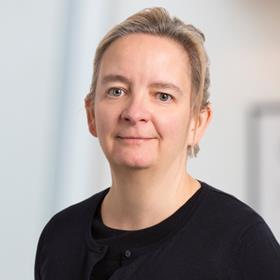A senior solicitor at international firm Hogan Lovells has been named as the first financial regulators complaints commissioner to be appointed by the Treasury as part of its effort to boost scrutiny of the City. Rachel Kent, partner in Hogan Lovells’ financial services regulatory team, will begin her five-year term in January.
The financial regulators complaints commissioner is responsible for independently reviewing complaints about regulators and the Bank of England. The commissioner has the power to make recommendations to the regulators, including recommending that they provide appropriate remedies where a complaint is upheld.

Kent: 'effective scrutiny'
Kent, admitted in 1997, succeeds the current commissioner, Amerdeep Somal. She is the first to be appointed by the Treasury rather than regulators following reforms in the Financial Services and Markets Act aimed at boosting the independence of City watchdogs.
At Hogan Lovells she is a senior partner in the financial services regulatory team advising banks, insurers, investment and wealth managers and financial market infrastructures. In 2020 she was acted as vice-chair of the 'Kalifa Review' into the FinTech sector. She also led the Investment Research Review, which considered the provision of investment research and its contribution to the competitiveness of UK capital markets.
Announcing the appointment, Treasury minister Bim Afolami MP said: 'Rachel brings a wealth of experience and expert knowledge of financial services regulation to this role. I am confident that she will provide robust and independent scrutiny of the way the financial services regulators have carried out their roles.'
Kent said: 'The financial services regulators have a significant impact on millions of consumers and firms and it is important that they are subject to effective scrutiny. I look forward to working with the regulators to ensure that complaints are handled efficiently and that there is transparency around how they operate.'
This article is now closed for comment.



























2 Readers' comments